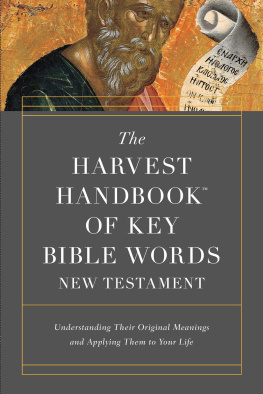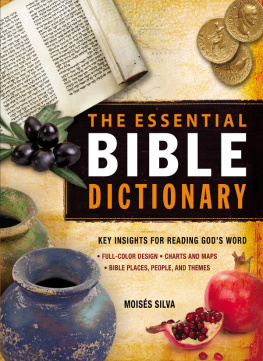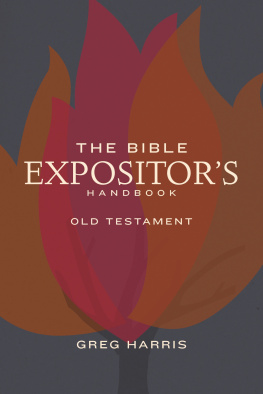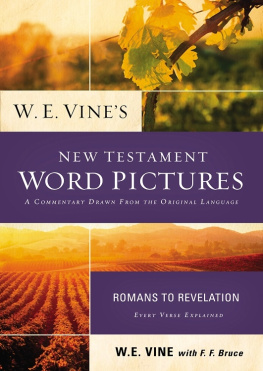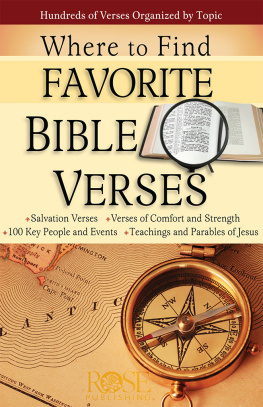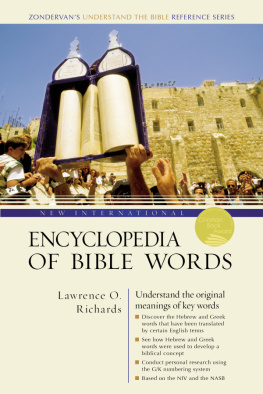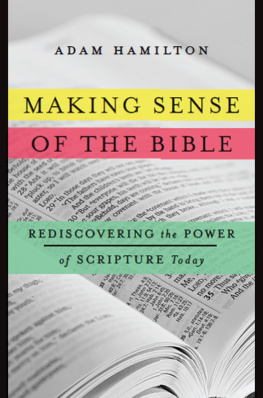Aramaic
Aramaic is a language very closely related to Hebrew. After the Babylonian exile the two languages used the same alphabet. Much of the Book of Daniel is written in Aramaic, with the rest in Hebrew. Aramaic would have been the language Jesus and his disciples primarily spoke (in addition to Hebrew, perhaps). There are various Aramaic phrases throughout the Gospels (such as in Mark 5:41).
Definite article
The definite article in Greek or Hebrew (or any language) is the word equivalent to the English word the.
Greek
The New Testament was written in koin (common) Greek because this was the main language of the Eastern Mediterranean world in the time of Jesus.
Hebrew
Hebrew is the language in which almost all of the Old Testament was written. At times the Greek of the New Testament shows some Hebraic or Aramaic patterns of speech and concepts.
Papyrus
Papyrus was a material to be written on, made from an Egyptian plant. In New Testament times it was common to make scrolls out of papyrus.
Pentateuch
The Pentateuch (also known as the Torah or the Law) consists of the first five books of the Bible: Genesis, Exodus, Leviticus, Numbers, and Deuteronomy.
Septuagint
The Septuagint is a translation of the Old Testament from its original Hebrew into Greek, done in the third to second centuries BC by Jewish scholarsseventy of them, according to tradition. The New Testament writers often used the Septuagint as their favorite translation.
Synoptic Gospel
The Synoptic Gospels, or synoptics, are the writings of Matthew, Mark, and Luke about the life, ministry, death, and resurrection of Jesus. Johns Gospel has some similarities with these three, but Matthew, Mark, and Luke are called synoptic (an English word of Greek origin meaning seeing with) because they use most of the same material. John organized his Gospel differently, and shared unique stories about, and discourses from, Jesus.
Translation
A translation takes the meaning of words, phrases, speech, or bodies of text in one language, and represents them using the words of another language. For example, the Greek word pneuma (spirit, wind, breath) is a translation of the Hebrew word ruach (also meaning spirit, wind, breath).
Transliteration
A transliteration takes the sounds of a word or phrase in one language and represents them using the alphabet of a different language. Greek has a different alphabet from Hebrew and Aramaic, so if a New Testament author, writing in Greek, wanted to write a Hebrew or Aramaic word, they would use the letters of the Greek alphabet to approximate the Hebrew words sounds. In the same way, in this handbook, every Greek word is transliterated from its Greek spelling to an English spelling, representing its sound as closely as possible. For example, the Greek word (meaning Christ, Messiah, or Anointed One) is represented (or transliterated) with the following spelling: Christos .
. This Handbook is based on the work originally done by Walter Bauer in German, translated from German to English by F. Wilbur Gingrich and William F. Arndt, and later edited by Frederick William Danker.
. Mark L. Strauss, Zondervan Exegetical Commentary on the New Testament: Mark , ed. Clinton E. Arnold (Grand Rapids, MI: Zondervan, 2014), 687. See also Ched Myers, Binding the Strong Man (Maryknoll, NY: Orbis Books, 2008), 379-380.
. Daniel Wallace, Greek Grammar Beyond the Basics (Grand Rapids, MI: Zondervan, 1996), 269.
. Ron Rhodes, Reasoning from the Scriptures with the Jehovahs Witnesses (Eugene, OR: Harvest House Publishers, 2009), 108-109. See also Robert Bowman, Jehovahs Witnesses, Jesus Christ, and the Gospel of John (Grand Rapids, MI: Baker Book House, 1989), 32.
. Douglas J. Moo, The NIV Application Commentary: 2 Peter and Jude (Grand Rapids, MI: Zondervan, 1996), 101.
. David E. Garland, Zondervan Exegetical Commentary on the New Testament: Luke , ed. Clinton E. Arnold (Grand Rapids, MI: Zondervan, 2011), 760.
. Grant R. Osborne, Zondervan Exegetical Commentary on the New Testament: Matthew , ed. Clinton E. Arnold (Grand Rapids, MI: Zondervan, 2010), 88.
. Ben Witherington III, Johns Wisdom: A Commentary on the Fourth Gospel (Louisville, KY: Westminster John Knox Press, 1995), 117.
. The main point of Pauls letter to the Galatians, as Thomas Schreiner noted in his commentary, is that Gentiles are now adopted into Gods family as his children, that they are now the offspring of Abraham because they are incorporated into Christ. See Thomas R. Schreiner, Zondervan Exegetical Commentary on the New Testament: Galatians , ed. Clinton E. Arnold (Grand Rapids, MI: Zondervan, 2010), 271.
To learn more about Harvest House books and to read sample chapters, visit our website:
www.harvesthousepublishers.com

HARVEST HOUSE PUBLISHERS
EUGENE, OREGON
Abba
The word abba is an intimate Aramaic word for addressing ones father. A small child would use this word to talk to his or her father. Jesus used this word to relate to God the Father, as did Paul (possibly echoing Jesus).
Definition
abba (noun, Strongs #5)
Abba is an Aramaic word, found in Mark 14:36, Romans 8:15, and Galatians 4:6. In the Gemara (a rabbinical commentary on the Mishna, the traditional teaching of the Jews) it is stated that slaves were forbidden to address the head of the family by this title. It is like a personal name, in contrast to the proper name Father, with which it is always joined in the NT ( Abba , Father). This is probably due to the fact that abba had practically become a proper name, and as a result, Greek-speaking Jews added the Greek word patr , father. Abba is the sound articulated from the lips of infants, and suggests unreasoning trust. Father ( patr ) expresses an intelligent understanding of the relationship. The two together express the love and confidence of a child.
Insight
Aramaic is the language Jesus and the early Christians spoke. It is a language similar to Hebrew in that it uses the same alphabet and shares many of the same features.
Quotes
When I relapsed [into alcoholism], I had two options: yield once again to fear, guilt, and depressionor rush into the arms of my heavenly Father; choose to live as a victim of my diseaseor choose to trust in Abbas immutable love.
Brennan Manning, Abbas Child: The Cry of the Heart for Intimate Belonging (Colorado Springs, CO: NavPress, 2015), 4.
Probably the word Abba [in Galatians 4:6], the Aramaic term for Father, derives from the term that Jesus himself used in addressing God (cf. Mark 14:36), signifying that God is the loving and dear Father of those who believe in Jesus the Christ.
Thomas R. Schreiner, Galatians: Zondervan Exegetical Commentary on the New Testament (Grand Rapids, MI: Zondervan, 2010), 272.
Abyss
In Revelation, abyss refers to a bottomless pit where demonic hoardes are imprisoned, a holding place from which they cannot escape without Gods consent.
Definition
abussos (feminine noun, Strongs #12)
Abussos is used as a noun denoting the abyss ( NRSV : bottomless pit). It describes an immeasurable depth, the underworld, the lower regions, the abyss of Sheol (see below). It refers to these lower regions as the abode of demons, out of which they can be let loose (Revelation 11:7; 17:8). It occurs seven times in Revelation (9:1,2,11; 11:7; 17:8; 20:1,3).
Insight
This word primarily corresponds to the Hebrew Old Testament concept of Sheol , a shadowy underworld.
Admonition, Admonish
An admonition in the Bible has to do with warning, correction, and instruction. In the case of the most common examples, nouthete (verb) and nouthesia (noun), it has to do with putting a correction in mind. None of these words are necessarily meant to have frightening or unloving connotations. Paul uses the verb nouthete in 1 Corinthians 4:14 in the context of warning the Corinthians as a parent would a child, from love.
Next page
